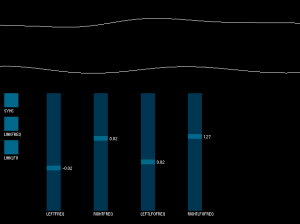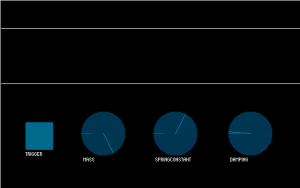I recently gave a 5 minute “microtalk” about Minim at an Austin IGDA event and included in it a couple examples using the new UGen framework. In fact, I wrote the presentation in Processing, but I don’t think it is really interesting enough to post the entire application. Instead, I pulled out the song I programmed for it as a standalone sketch. Check it out.
Category Archives: Sound Bytes
Sound Byte: Loop Chopper
This Sound Byte gives you sliders to control the parameters of a GranulateSteady UGen, which allows you chop up a sound as it plays. I’ve created a loop from the song Again and Again by The Bird and The Bee, which will hopefully get annoying enough that you’ll want to chop it into indiscernibility. The buttons along the side let you set the range of the sliders from quite small, to a full second.
Sound Bytes: Oscil as a looping sampler
Eventually, we plan to add a UGen to Minim that will allow you to control the generating speed of any other UGen, but that got me thinking about how you might do something similar with existing components. So, I struck upon the idea of using an Oscil as a looping sampler by using an audio file as the Waveform and setting the frequency of the Oscil to be very low. The fun thing about this is that if you set the Oscil to a negative frequency, the sound will play in reverse. Additionally, I thought it’d be fun to be able to automate the changing of the frequency by having an LFO control the frequency of each Oscil (left and right channels of the original audio file). So here’s a sketch that lets you play with this setup:
Sound Byte: Mass-Spring-Damper System
I’m picking my way through Real Sound Synthesis for Interactive Applications by Perry R. Cook (one of the authors of the STK) and decided to start making small apps to demonstrate the different kinds of synthesis he covers in the book. This first one let’s you set the variables of a mass-spring-damper system and then trigger it, which is exactly the same as setting the coefficients of a two-pole IIR filter and sending an impulse into it (as it turns out). Check it:



